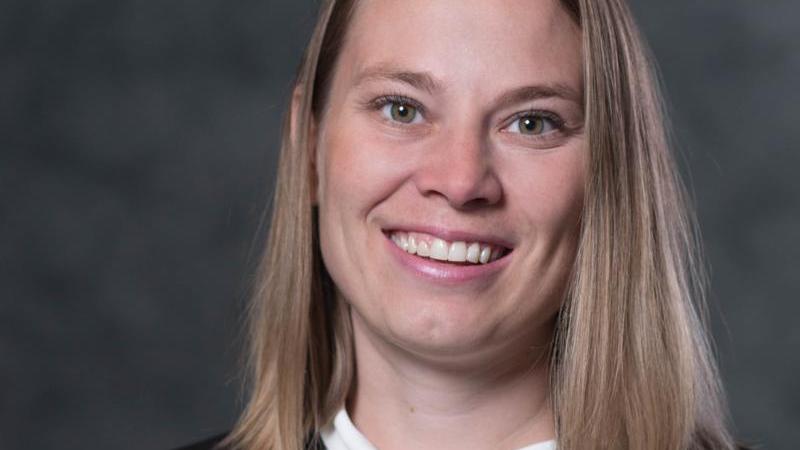Program, established after Deepwater Horizon oil spill, aims to enhance oil system safety
October 19, 2016

Jennifer Pazour, assistant professor of industrial and systems engineering at Rensselaer Polytechnic Institute, has been named the recipient of a 2016 Gulf Research Program Early-Career Research Fellowship.
A program of the National Academies of Sciences, Engineering, and Medicine, the Gulf Research Program was established in 2013 as a result of the Deepwater Horizon oil spill. The program funds activities to enhance oil system safety and the protection of human health and the environment in the Gulf of Mexico and U.S. outer continental shelf regions.
“This year’s fellows reflect the wide range of expertise and experience that the Gulf and other coastal regions’ complex, interdisciplinary challenges call for,” said Maggie Walser, fellowships director for the Gulf Research Program. “Through these fellowships, the Gulf Research Program is strengthening the long-term scientific and technical capacities that are needed in coastal regions while also supporting an exemplary set of young researchers and professionals.”
Pazour is one of 10 recipients of the early-career research fellowships, which recognize professionals at the critical pre-tenure phase of their careers for exceptional leadership, past performance, and potential for future contributions.
In her research, Pazour explores how to make decisions in logistics and resource-sharing systems. Logistics is concerned with the movement and storage of goods, and plays a critical role in disaster response. Resource sharing systems connect resource requests to a host of independent, decentralized resource owners. Pazour develops mathematical models and solution algorithms of complex systems as a way of understanding and quantifying trade-offs with operation and design decisions.
“My research takes a ‘big picture’ view and embraces the complexity of integrating technologies, resources, and human capital to identify and evaluate innovative policies and systems,” said Pazour.
Gulf Research Program Fellows receive a two-year grant of $76,000 for research expenses and professional development. In addition, to foster their development as leaders, they receive professional guidance from a mentor who is a senior faculty member at their home institution. William Wallace, Yamada Corporation Professor in the Department of Industrial and Systems Engineering and an international expert in the field of emergency management modeling and simulation, will act as a mentor to Pazour.
Pazour holds three degrees in industrial engineering: a B.S. from South Dakota School of Mines and Technology, and an M.S. and Ph.D. from the University of Arkansas. Before joining Rensselaer in 2015, she was an assistant professor of industrial engineering and management systems at the University of Central Florida.
She is a member of the Institute for Operations Research and the Management Sciences and the Institute of Industrial and Systems Engineers, and serves on the board of the Warehousing Education and Research Council. She is a recipient of a Young Investigator Award from the Office of Naval Research, a Research Start-up Grant from the Material Handling Institute, and a Doctoral Dissertation Enhancement Project from the National Science Foundation.
Pazour’s research exemplifies The New Polytechnic, an emerging paradigm for teaching, learning, and research at Rensselaer. The New Polytechnic emphasizes and supports collaboration across disciplines, sectors, and regions to address the great global challenges of our day, using the most advanced tools and technologies, many of which are developed at Rensselaer.
About Rensselaer Polytechnic Institute
Rensselaer Polytechnic Institute, founded in 1824, is America’s first technological research university. The university offers bachelor’s, master’s, and doctoral degrees in engineering; the sciences; information technology and web sciences; architecture; management; and the arts, humanities, and social sciences. Rensselaer faculty advance research in a wide range of fields, with an emphasis on biotechnology, nanotechnology, computational science and engineering, data science, and the media arts and technology. The Institute has an established record of success in the transfer of technology from the laboratory to the marketplace, fulfilling its founding mission of applying science “to the common purposes of life.” For more information, please visit http://www.rpi.edu.